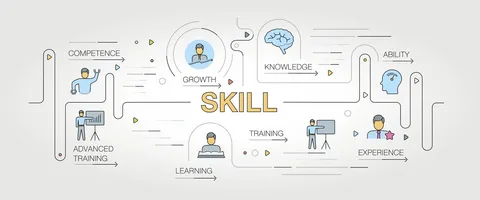In the dynamic realm of human resources, the infusion of Artificial Intelligence (AI) is reshaping conventional recruitment processes. From talent sourcing to candidate selection, AI is introducing unprecedented efficiency and innovation. This article delves into the pivotal role of AI in human resources, focusing on its capacity to streamline recruitment and elevate the overall hiring experience.
Evolving Recruitment Dynamics
Traditional recruitment methodologies often involve labor-intensive procedures, consuming substantial time and resources. The advent of AI represents a transformative shift, automating tasks and introducing intelligent algorithms to streamline the entire recruitment lifecycle.
Intelligent Resume Screening
AI-driven systems excel at resume screening, efficiently analyzing extensive pools of resumes to pinpoint candidates whose qualifications align with specific job requirements. This automation significantly expedites the initial stages of candidate selection.
Identifying Passive Candidates
AI tools leverage data from various sources to identify passive candidates—individuals not actively seeking employment but possessing the skills sought by organizations. This proactive approach expands the talent pool and enriches recruitment strategies.
Automated Candidate Engagement
Chatbots and virtual assistants powered by AI enhance candidate engagement throughout the recruitment process. These tools can answer queries, provide information about job openings, and guide candidates through initial application steps, fostering a positive candidate experience.
Streamlined Interview Scheduling
AI-driven scheduling tools simplify the coordination of interviews. By analyzing the availability of both candidates and interviewers, these systems suggest optimal time slots, reducing the time and effort traditionally spent on scheduling.
Predictive Analytics for Skills Evaluation
AI employs predictive analytics to assess candidates’ skills and capabilities. By analyzing historical data on successful hires, AI models can predict the likelihood of a candidate’s success in a particular role based on their skill set and experiences.
Gamified Assessments
Gamification in candidate assessments introduces interactive and engaging tasks that evaluate skills and cognitive abilities. AI-driven gamified assessments provide a more holistic understanding of a candidate’s capabilities beyond traditional methods.
Unbiased Candidate Shortlisting
AI is designed to minimize unconscious biases in the recruitment process. By relying on data-driven decision-making, AI algorithms aim to shortlist candidates based on merit, skills, and qualifications, contributing to a more diverse and inclusive workforce.
Inclusive Language Processing
AI-driven language processing tools analyze job descriptions to identify and eliminate potential biases. This ensures that job postings use inclusive language, promoting diversity and attracting candidates from various backgrounds.
Personalized Onboarding Plans
AI contributes to personalized onboarding experiences by analyzing individual employee profiles and tailoring onboarding plans accordingly. This personalization enhances employee satisfaction and accelerates the integration of new hires into the organizational culture.
Continuous Feedback and Improvement
AI-driven systems facilitate continuous feedback loops by collecting and analyzing employee feedback on the onboarding process. This iterative approach allows organizations to identify areas for improvement and enhance the effectiveness of onboarding strategies.
Ethical Use of AI in Recruitment
The ethical use of AI in recruitment is a critical consideration. Organizations must ensure that AI algorithms are transparent, fair, and free from biases to prevent unintentional discrimination in the hiring process.
Data Security and Privacy
The use of AI involves the collection and processing of vast amounts of sensitive data. Ensuring robust data security and privacy measures is essential to protect both candidates and organizations from potential breaches.
AI-Driven Talent Management
The future of AI in human resources extends beyond recruitment to encompass comprehensive talent management. AI will play a key role in employee development, retention, and career progression, creating a holistic approach to workforce optimization.
Enhanced AI Collaboration
AI collaboration tools will become more sophisticated, fostering seamless interactions between AI systems and human recruiters. This synergy aims to leverage the strengths of both AI and human intelligence for more effective and nuanced decision-making.
Conclusion
The integration of AI into human resources, particularly in recruitment, signifies a profound shift towards efficiency, inclusivity, and enhanced candidate experiences. As organizations navigate the evolving landscape of talent acquisition, leveraging AI technologies becomes instrumental in staying competitive and building high-performing teams.
FAQs
How does AI streamline recruitment processes? AI streamlines recruitment through intelligent resume screening, automated candidate engagement with chatbots and virtual assistants, AI-powered candidate assessments, and the reduction of biases in the selection process.
What is the role of AI in candidate sourcing? AI plays a crucial role in candidate sourcing by automating resume screening, identifying passive candidates, and expanding the talent pool through data-driven strategies.
How does AI contribute to diversity promotion in recruitment? AI contributes to diversity promotion by minimizing unconscious biases in candidate shortlisting and analyzing job descriptions to ensure inclusive language. These measures aim to create a more diverse and inclusive workforce.

